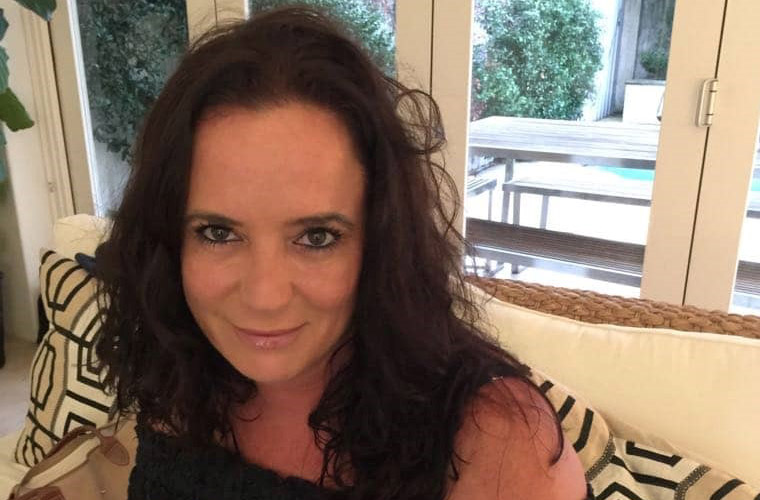Feature
Silence and stigma: Living with chronic pain
Chronic Pain Australia, a transvaginal mesh survivor and a GP discuss how to best manage the condition in National Pain Week.
 The best ways to treat and manage chronic pain are under discussion in National Pain Week.
The best ways to treat and manage chronic pain are under discussion in National Pain Week.
‘Living in chronic pain, it can be relentless. There are good days and bad days, but of course, I look perfectly well on the outside, so it’s an invisible illness with all the stigmas that come with that.’
These are the words of Justine Watson, who has lived with chronic pain for almost a decade after receiving a transvaginal mesh implant following the birth of her two children.
Justine immediately experienced a host of mysterious symptoms ranging from infection to thyroid disease after the surgery, and was hospitalised several times. But as the source of her problems was difficult to identify, she was eventually referred for psychiatric assessment by her long-term GP – a suggestion that Justine, a mental health care worker for 25 years, found hard to take.
‘The message was that it was all in my head, but these symptoms were all very real to me, although none of them were able to be linked back to the mesh because they hadn’t done the research yet,’ Justine told newsGP.
‘So it was very fracturing, it broke my relationship with [my doctor].’
Eventually, Justine found a group of women through Facebook who were having similar experiences, and travelled to America to have mesh removal surgery performed by an expert in the field.
‘I say I’m 80% recovered, but I still live in a lot of pain, and with the trauma of being a casualty of a medical disaster,’ Justine said.
This year’s theme for National Pain Week, ‘Equal partners in my healthcare’, was selected to advocate for people like Justine who are living with chronic pain.
‘What people in pain are telling us, very strongly, is they want to be at the centre of their healthcare and pain management plans,’ Jarrod McMaugh, pharmacist and National President of advocacy organisation Chronic Pain Australia, said.
‘While people in pain can learn and benefit from healthcare professionals, so too can healthcare professionals benefit from hearing and really understanding the lived experience of the person they are treating.’
Justine has also found stigma can be a barrier for people with chronic pain when they are seeking treatment.
‘It only takes a health professional asking you, when you’re telling your story, in a way that feels like you’re being questioned; just one wrong comment can send the whole thing sideways and break the very fragile level of trust that may be still existing,’ she said.
 Justine Watson believes empathy, listening and understanding are crucial in care for patients with chronic pain.
Justine Watson believes empathy, listening and understanding are crucial in care for patients with chronic pain.
Chronic Pain Australia has marked National Pain Week by releasing its National pain survey, in which more than 1200 people living with chronic pain were asked about their experiences and what assistance they needed to increase their quality of life.
One of the survey’s key findings – that 65% of respondents visit their GP monthly or more about their chronic pain – shows the frontline role GPs play in managing this condition.
‘There’s no doubt that excellent, multidisciplinary pain medicine is an amazing thing,’ Dr Simon Holliday, a GP with a special interest in pain management, told newsGP.
‘But it’s a very niche product – less than 0.2% of people with chronic pain will access a tertiary pain centre … putting the statistic around the other way, [a large amount] of chronic pain is managed in general practice.’
Dr Holliday emphasises that chronic pain is often a complex, multifactorial condition that goes beyond the physical, which means that GPs, with their wide general knowledge and holistic approach, are well-placed to manage it.
‘When we see people in general practice, we don’t just see someone in chronic pain, it’s, “My partner’s left me and I’m so depressed, I can’t get a job, my osteoarthritis is killing me and I can’t lose weight”,’ he said.
‘We also know statistically that people with chronic pain who present to GPs have high levels of multimorbidity, and GPs are going to be looking after the majority of problems with a fraction of the resources of tertiary pain centres.’
According to Dr Holliday, this means there needs to be a focus on giving GPs more support for pain management rather than providing more funding for specialist services.
‘We need to actually equip and resource and train GPs so they can do a great job, otherwise we are kidding ourselves that we are making a dent in the whole problem,’ he said.
 Dr Simon Holliday believes with the correct training and education, GPs are well-placed to help patients manage chronic pain.
Dr Simon Holliday believes with the correct training and education, GPs are well-placed to help patients manage chronic pain.
Respondents to the National pain survey said they believe GPs and pharmacists manage their pain well, but that they would like to be treated with greater patience, empathy and understanding.
Justine has found this to be vital in her experience as a patient.
‘I think being heard is supremely important,’ she said. ‘Although in the busy life of any professional, it can be hard to squeeze in … it should be the first thing that we approach patients, clients, consumers, with listening to how they are.’
Dr Holliday agrees that taking the time to listen is a major part of the therapeutic relationship between patient and GP.
‘We need to try and listen to what people have got to say, because even if they’re just listened to, it’s going to make a big difference in their life,’ he said.
The survey also found that people with chronic pain would like state and federal governments to make treatments more affordable and accessible, particularly medicinal cannabis and allied health.
But Dr Holliday is sceptical about these avenues for pain treatment, especially pharmaceuticals.
‘We now know that the majority of pharmaceuticals don’t actually work for most people, so the story of pharmaceuticals is one of disappointment, and that’s why we’re looking at function and quality of life and getting on with your life rather than worrying about the intensity of pain,’ he said.
‘What we find is if people do start to move a bit and enjoy their life with their social relationships and their community, they often say their pain is a lot less.’
He is especially cautious about medicinal cannabis, given the medical profession’s experience with the last great hope of pain treatment: opioids.
‘Now the new medicine is medicinal cannabis, and we’re going to go down the same old path … we used to have this about opiate phobia, now we’re going to have it with medicinal cannabis,’ he said.
Dr Holliday also remains steadfast in the belief that general practice remains the best place for comprehensive pain management and treatment, as long as GPs are properly equipped with the education they need.
‘GPs need to be really comfortable about managing pain, whether it’s palliative care, chronic pain, acute pain, and the impact of analgesics such as opioids – but we’re not resourced properly,’ he said.
‘I think we have to re-appraise general practice; we need to be having research and educational excellence in general practice, because this is where the people are, this is where accessible healthcare is, and this is where it’s cost-effective.’
When asked the main thing she would like GPs and other healthcare professionals to know from her experience as a person with chronic pain, Justine’s answer is simple.
‘That what I say is my truth. I need to be heard, I need to feel as if you’re understanding what I’m feeling – I need empathy, and I need support.’
Chronic pain National Pain Week opioids Pain management Pain medication
newsGP weekly poll
Which of the following areas are you more likely to discuss during a routine consultation?